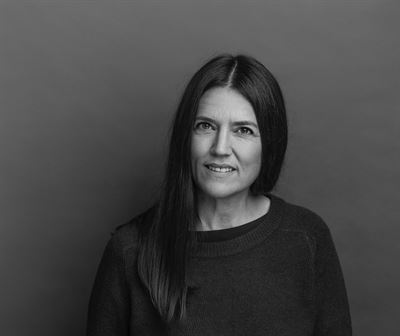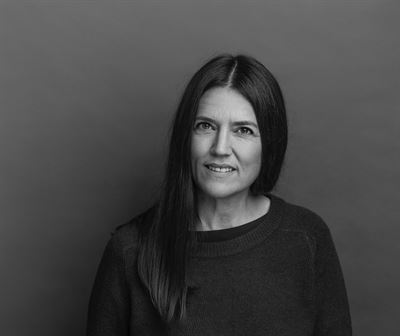Marknadsnyheter
Datopotamab deruxtecan plus Imfinzi showed promising clinical activity in the first-line advanced non-small cell lung cancer setting in TROPION-Lung04 Phase Ib trial
AstraZeneca and Daiichi Sankyo’s datopotamab deruxtecan plus Imfinzi with or without chemotherapy demonstrated objective response rates of 77% and 50% and disease control rates of 92% and 93%, respectively. Three ongoing pivotal trials are evaluating datopotamab deruxtecan and immune checkpoint inhibitor combinations in 1st-line advanced non-small cell lung cancer.
Initial results from the TROPION-Lung04 Phase Ib trial showed that datopotamab deruxtecan (Dato-DXd) in combination with Imfinzi (durvalumab), an anti-PD-L1 therapy, with or without carboplatin demonstrated encouraging responses and no new safety signals in patients with previously untreated advanced or metastatic non-small cell lung cancer (NSCLC) without actionable genomic alterations.
These data were presented today in a late-breaking oral presentation (#OA05.06) at the International Association for the Study of Lung Cancer (IASLC) 2023 World Conference on Lung Cancer (WCLC).
Datopotamab deruxtecan is a specifically engineered TROP2-directed DXd antibody drug conjugate (ADC) being jointly developed by AstraZeneca and Daiichi Sankyo.
More than one million people worldwide are diagnosed with advanced NSCLC each year.1,2 While 1st-line treatment with immune checkpoint inhibitors with or without chemotherapy has improved outcomes for patients with NSCLC without actionable genomic alterations, like EGFR or ALK, most patients eventually experience disease progression.3-5 TROP2 is a protein broadly expressed in a large majority of NSCLC tumours.6 There are currently no TROP2-directed ADCs approved for the treatment of patients with lung cancer.7,8
In previously untreated patients, datopotamab deruxtecan plus durvalumab (doublet; n=14) demonstrated an objective response rate (ORR) of 50.0%, including 7 partial responses (PR), and a disease control rate (DCR) of 92.9%. Response rates were higher in patients receiving datopotamab deruxtecan plus durvalumab and carboplatin (triplet; n=13) which demonstrated an ORR of 76.9%, including 10 PRs, and a DCR of 92.3%. Responses were observed across PD-L1 expression levels.
Saiama Waqar, MD, Siteman Cancer Center, Washington University School of Medicine, St. Louis, Missouri, and investigator in the trial, said: “Most patients with advanced non-small cell lung cancer experience disease progression after initial treatment, underscoring the need for more effective first-line treatment options. The TROPION-Lung04 results offer preliminary evidence for the efficacy of datopotamab deruxtecan in combination with durvalumab and chemotherapy in first-line advanced non-small cell lung cancer with no new safety signals. We eagerly await enrolment and results from the Phase III programme evaluating various datopotamab deruxtecan and immune checkpoint inhibitor combinations in this setting.”
Cristian Massacesi, Chief Medical Officer and Oncology Chief Development Officer, AstraZeneca, said: “Following the positive high-level results of TROPION-Lung01, these initial TROPION-Lung04 results in the first-line setting reinforce our confidence in datopotamab deruxtecan as a potential treatment option for patients with advanced non-small cell lung cancer. Through our robust clinical programme we are eager to continue evaluating this TROP2-directed antibody drug conjugate in lung cancer across treatment settings, alone and in novel combinations.”
Mark Rutstein, MD, Global Head, Oncology Clinical Development, Daiichi Sankyo, said: “These early trial results further demonstrate the potential for datopotamab deruxtecan to enhance response to immune checkpoint inhibitors in patients with advanced non-small cell lung cancer and without actionable genomic alterations. We look forward to continuing to evaluate this promising TROP2-directed antibody drug conjugate in multiple ongoing Phase III trials to address what has long been an unmet need for the lung cancer community across treatment settings.”
In both previously treated and untreated patients, the safety profiles of datopotamab deruxtecan and Imfinzi with and without carboplatin were consistent with other clinical trials and with the known safety profile of each agent. Grade 3 or greater treatment-emergent adverse events (TEAEs) occurred in 42.1% of patients receiving doublet therapy and 71.4% of patients receiving triplet therapy. In patients receiving triplet therapy, the most common Grade 3 or greater TEAEs (occurring in more than 15% of patients) were anaemia (36%) and thrombocytopenia (21%). No Grade 3 or greater TEAE occurred in more than 15% of patients receiving doublet therapy. Across treatment cohorts, there were four interstitial lung disease (ILD) events adjudicated as drug-related by an independent committee including one Grade 1 event, two Grade 2 events and one Grade 4 event. No Grade 5 ILD events were observed.
Summary of TROPION-Lung04 Efficacy Results
| Responses in Previously Untreated Patients |
||
| Doublet Therapy (Cohort 2; n=14) |
Triplet Therapy (Cohort 4; n=13) |
|
| ORR (confirmed and pending), %i (95% CI) |
50.0% (23.0-77.0; n=7) |
76.9% (46.2-95.0; n=10) |
| CR, % |
0% |
0% |
| PR, % |
50.0% (n=7) |
76.9% (n=10) ii |
| SD, % |
42.9% (n=6) |
15.4% (n=2) |
| PD, % |
7.1% (n=1) |
7.7% (n=1) |
| DCR, % iii |
92.9% (66.1-99.8; n=13) |
92.3% (64.0-99.8; n=12) |
CI, confidence interval; CR, complete response; DCR, disease control rate; ORR, objective response rate; PR, partial response; PD, progressive disease; SD, stable disease
i ORR is CR + PR
ii One of the 10 partial responses in Cohort 4 was confirmed after data cut-off
ii iDCR is best overall response of confirmed CR + confirmed PR + SD
In the doublet cohort, 73.7% (n=14 of 19) of patients were previously untreated. In the triplet cohort, 92.9% (n=13 of 14) of patients were previously untreated. Both the doublet and triplet cohorts included patients with PD-L1 expression levels ranging from less than 1% (n=6, 6), 1-49% (n=6, 3) and 50% or greater (n=7, 5). As of the 6 March 2023 data cut-off, median study duration was six months for both cohorts and treatment was ongoing in 31.6% and 50.0% of patients in the doublet and triplet cohorts, respectively.
AstraZeneca and Daiichi Sankyo have three Phase III trials evaluating datopotamab deruxtecan-based combinations as potential 1st-line treatment options for patients with advanced or metastatic NSCLC without actionable genomic alterations compared to the respective standard of care for the patient population of each study.
- AVANZAR is evaluating datopotamab deruxtecan plus Imfinzi and carboplatin in patients regardless of PD-L1 expression or tumour histology.
- TROPION-Lung07 is evaluating datopotamab deruxtecan plus pembrolizumab with or without chemotherapy in patients with non-squamous disease and PD-L1 expression less than 50%.
- TROPION-Lung08 is evaluating datopotamab deruxtecan plus pembrolizumab in patients with PD-L1 expression of 50% or greater.
Notes
Non-small cell lung cancer
More than one million people worldwide are diagnosed with advanced NSCLC each year.1,2 While targeted therapies and immune checkpoint inhibitors have improved patient outcomes, advanced NSCLC has a poor prognosis and is associated with worsening outcomes after each line of subsequent therapy.3-5
Most patients with NSCLC have tumours that do not express a known actionable genomic alteration (e.g., EGFR, ALK, ROS1, NTRK, BRAF, RET or MET).9-11 The current 1st-line standard of care for these patients is immune checkpoint inhibitors with or without platinum-based chemotherapy. Approximately 40-60% of tumours will not respond to this initial treatment and while these therapies may improve survival for patients whose tumours do respond, most will experience disease progression.5,7
TROP2, a transmembrane glycoprotein, is broadly expressed in a large majority of NSCLC tumours.6 There are currently no TROP2-directed ADCs approved for the treatment of lung cancer.
TROPION-Lung04
TROPION-Lung04 is an ongoing global, open-label, 11-cohort Phase Ib trial evaluating the efficacy and safety of datopotamab deruxtecan (4 mg/kg or 6 mg/kg) in combination with immunotherapy (Imfinzi, AZD2936 or MEDI5752) with or without up to four cycles of carboplatin in patients with advanced or metastatic NSCLC without actionable genomic alterations. Patients enrolled in the cohorts evaluating Imfinzi were previously untreated or had received one or fewer lines of systemic chemotherapy without concomitant immunotherapy. The primary endpoints of TROPION-Lung04 are safety and tolerability. Secondary endpoints include ORR, DCR, duration of response and progression-free survival as assessed by investigator. TROPION-Lung04 will enrol approximately 230 patients globally.
Datopotamab deruxtecan (Dato-DXd)
Datopotamab deruxtecan (Dato-DXd) is an investigational TROP2-directed ADC. Designed using Daiichi Sankyo’s proprietary DXd ADC technology, datopotamab deruxtecan is one of five lead ADCs in the oncology pipeline of Daiichi Sankyo, and one of the most advanced programmes in AstraZeneca’s ADC scientific platform. Datopotamab deruxtecan is comprised of a humanized anti-TROP2 IgG1 monoclonal antibody, developed in collaboration with Sapporo Medical University, attached to a number of topoisomerase I inhibitor payloads (an exatecan derivative, DXd) via tetrapeptide-based cleavable linkers.
A comprehensive development programme is underway globally with more than 12 trials evaluating the efficacy and safety of datopotamab deruxtecan across multiple TROP2-targetable tumours, including NSCLC, triple-negative breast cancer and hormone receptor-positive, HER2-negative breast cancer. Beyond the TROPION programme, datopotamab deruxtecan is also being evaluated in novel combinations in several ongoing trials. AstraZeneca is also researching a potential diagnostic test to help identify patients most likely to benefit from treatment with datopotamab deruxtecan.
Imfinzi
Imfinzi (durvalumab) is a human monoclonal antibody that binds to the PD-L1 protein and blocks the interaction of PD-L1 with the PD-1 and CD80 proteins, countering the tumour’s immune-evading tactics and releasing the inhibition of immune responses.
Imfinzi is the only approved immunotherapy and the global standard of care in the curative-intent setting of unresectable, Stage III NSCLC in patients whose disease has not progressed after chemoradiation therapy based on the PACIFIC Phase III trial.
Imfinzi is also approved in the US, EU, Japan, China and many other countries around the world for the treatment of extensive-stage SCLC based on the CASPIAN Phase III trial. In an exploratory analysis in 2021, updated results from the CASPIAN trial showed Imfinzi plus chemotherapy tripled patient survival at three years versus chemotherapy alone. Additionally, Imfinzi is approved in combination with a short course of Imjudo (tremelimumab) and chemotherapy for the treatment of metastatic NSCLC in the US, EU and Japan based on the POSEIDON Phase III trial.
In addition to its indications in lung cancer, Imfinzi is also approved in combination with chemotherapy in locally advanced or metastatic biliary tract cancer in the US, EU, Japan and several other countries; in combination with Imjudo in unresectable hepatocellular carcinoma in the US, EU and Japan; and in previously treated patients with advanced bladder cancer in a small number of countries.
Since the first approval in May 2017, more than 200,000 patients have been treated with Imfinzi.
AstraZeneca has several ongoing registrational trials focused on testing Imfinzi in earlier stages of lung cancer, including in resectable NSCLC (ADJUVANT BR.31) and unresectable NSCLC (PACIFIC-2, 4, 5, 8 and 9), and in limited-stage SCLC (ADRIATIC).
As part of a broad development programme, Imfinzi is being tested as a single treatment and in combinations with other anti-cancer treatments for patients with SCLC, NSCLC, bladder cancer, several gastrointestinal (GI) cancers, ovarian cancer, endometrial cancer and other solid tumours.
AstraZeneca and Daiichi Sankyo collaboration
AstraZeneca and Daiichi Sankyo entered into a global collaboration to jointly develop and commercialise Enhertu in March 2019 and datopotamab deruxtecan in July 2020, except in Japan where Daiichi Sankyo maintains exclusive rights for each ADC. Daiichi Sankyo is responsible for the manufacturing and supply of Enhertu and datopotamab deruxtecan.
AstraZeneca in lung cancer
AstraZeneca is working to bring patients with lung cancer closer to cure through the detection and treatment of early-stage disease, while also pushing the boundaries of science to improve outcomes in the resistant and advanced settings. By defining new therapeutic targets and investigating innovative approaches, the Company aims to match medicines to the patients who can benefit most.
The Company’s comprehensive portfolio includes leading lung cancer medicines and the next wave of innovations, including Tagrisso (osimertinib) and Iressa (gefitinib); Imfinzi (durvalumab) and Imjudo (tremelimumab); Enhertu (trastuzumab deruxtecan) and datopotamab deruxtecan in collaboration with Daiichi Sankyo; Orpathys (savolitinib) in collaboration with HUTCHMED; as well as a pipeline of potential new medicines and combinations across diverse mechanisms of action.
AstraZeneca is a founding member of the Lung Ambition Alliance, a global coalition working to accelerate innovation and deliver meaningful improvements for people with lung cancer, including and beyond treatment.
AstraZeneca in oncology
AstraZeneca is leading a revolution in oncology with the ambition to provide cures for cancer in every form, following the science to understand cancer and all its complexities to discover, develop and deliver life-changing medicines to patients.
The Company’s focus is on some of the most challenging cancers. It is through persistent innovation that AstraZeneca has built one of the most diverse portfolios and pipelines in the industry, with the potential to catalyse changes in the practice of medicine and transform the patient experience.
AstraZeneca has the vision to redefine cancer care and, one day, eliminate cancer as a cause of death.
AstraZeneca
AstraZeneca (LSE/STO/Nasdaq: AZN) is a global, science-led biopharmaceutical company that focuses on the discovery, development, and commercialisation of prescription medicines in Oncology, Rare Diseases, and BioPharmaceuticals, including Cardiovascular, Renal & Metabolism, and Respiratory & Immunology. Based in Cambridge, UK, AstraZeneca operates in over 100 countries and its innovative medicines are used by millions of patients worldwide. Please visit astrazeneca.com and follow the Company on social media @AstraZeneca.
Contacts
For details on how to contact the Investor Relations Team, please click here. For Media contacts, click here.
References
- Siegel R, et al. Cancer Statistics, 2021. CA Cancer J Clin. 2021;71:7-33.
- World Health Organization. International Agency for Research on Cancer. Lung Fact Sheet. Available at: https://gco.iarc.fr/today/data/factsheets/cancers/15-Lung-fact-sheet.pdf. Accessed September 2023.
- Shields MD, et al. Immunotherapy for advanced non-small cell lung cancer: a decade of progress. Am Soc Clin Oncol Educ Book. 2021;41:1-23.
- Walsh RJ, et al. Resistance to immune checkpoint inhibitors in non-small cell lung cancer: biomarkers and therapeutic strategies. Ther Adv Med Oncol. 2020 Oct;15(10):1657-1669.
- Paz-Ares L, et al. A randomized, placebo-controlled trial of pembrolizumab plus chemotherapy in patients with metastatic squamous NSCLC: protocol-specified final analysis of KEYNOTE-407. J Thorac Oncol. 2020 Oct;15(10):1657-1669.
- Mito R, et al. Clinical impact of TROP2 in non-small cell lung cancers and its correlation with abnormal p53 nuclear accumulation. Pathol Int. 2020;70(5):287-294.
- Rodríguez-Abreau D, et al. Pemetrexed plus platinum with or without pembrolizumab in patients with previously untreated metastatic nonsquamous NSCLC: protocol-specified final analysis from KEYNOTE-189. Ann Oncol. 2021 Jul;32(7):881-895.
- American Cancer Society. Targeted Drug Therapy for Non-Small Cell Lung Cancer. Available at: https://www.cancer.org/cancer/types/lung-cancer/treating-non-small-cell/targeted-therapies.html. Accessed September 2023.
- Chen R, et al. Emerging therapeutic agents for advanced non-small cell lung cancer. J Hematol Oncol. 2020;13(1):58.
- Majeed U, et al. Targeted therapy in advanced non-small cell lung cancer: current advances and future trends. J Hematol Oncol. 2021;14(1):108.
- Adib E, et al. Variation in targetable genomic alterations in non-small cell lung cancer by genetic ancestry, sex, smoking history, and histology. Genome Med. 2022;14(1):39.
Marknadsnyheter
Regeringen föreslår lättnader i byggkraven för studentbostäder
Regeringen har beslutat om en lagrådsremiss med förslag till lättnader i byggkraven för studentbostäder. Syftet är att öka möjligheterna till flexibilitet vid byggandet.
– På många studieorter är det svårt för studenter att hitta boende. Därför behöver byggregelverket förenklas. Syftet är att möjliggöra för fler studentbostäder genom sänkta byggkostnader och ökad flexibilitet, säger infrastruktur- och bostadsminister Andreas Carlson.
Förslaget innebär att det blir möjligt att göra undantag från kraven på tillgänglighet och användbarhet i en byggnad som innehåller studentbostäder. Undantagen ska kunna tillämpas vid både nyproduktion och vid ändring av en byggnad.
Det ska vara möjligt att göra undantag för högst 80 procent av studentbostäderna i ett byggprojekt. Minst 20 procent av studentbostäderna ska fortfarande uppfylla gällande krav på tillgänglighet och användbarhet för personer med nedsatt rörelse- eller orienteringsförmåga.
Lagändringen ger större flexibilitet vid byggande av studentbostäder och skapar fler tänkbara sätt att utforma planlösningar. Till exempel kan bostadsytan minskas och fler bostäder rymmas inom en given yta.
De föreslagna undantagen ska inte hindra personer med funktionsnedsättning att vara delaktiga i sociala sammanhang. En studentbostad som omfattas av undantagen ska kunna besökas av en person med nedsatt rörelse- eller orienteringsförmåga.
Regeringen breddar också definitionen av studentbostäder till att inkludera all vuxenutbildning för att göra det möjligt för fler kommuner att erbjuda studentbostäder.
Förslagen föreslås träda i kraft den 1 juli 2025.
Lagrådsremissen: Lättnader i byggkraven för studentbostäder – Regeringen.se
Presskontakt
Ebba Gustavsson
Pressekreterare hos infrastruktur- och bostadsminister Andreas Carlson
Telefon (växel) 08-405 10 00
Mobil 076-12 70 488
ebba.gustavsson@regeringskansliet.se
Marknadsnyheter
“Vi behöver tillsammans enas om vettiga avtal, som sätter standard för branschen”


Sveriges Radios Kulturnytt gör just nu en mycket välkommen granskning av villkoren i musikbranschen. Igår lyftes artisten Siw Malmkvists situation med ett avtal som inte förnyats på över 60 år. Hennes situation är tyvärr långt ifrån unik. Musikerförbundet har länge uppmärksammat att majorbolagen fortsätter att betala extremt låga royaltynivåer till artister vars kontrakt skrevs på 1960-talet – en tid då digital streaming inte existerade.
– Jag kan intyga att artisterna som talar ut i P1 är långt ifrån ensamma om sin situation och vi uppmanar deras artistkollegor att gå ut med sitt tydliga stöd till de som vågar bryta tystnaden om oskäliga ersättningar, säger Musikerförbundets ordförande Karin Inde.
Musiker och artister skapar det värde som skivbolagen tjänar pengar på, men ändå ser vi gång på gång hur bolagen behåller stora delar av intäkterna. Att en av Sveriges mest folkkära artister, med en karriär som sträcker sig över decennier, fortfarande har en oskälig royalty är ett tydligt bevis på branschens obalans.
– Tystnadskulturen kring prissättning är enbart bra för bolagen. Både artister och musiker skulle verkligen tjäna på att dela med sig till varandra om hur betalningar och dealar verkligen ser ut. Förstås i trygga, egna rum. Det är bara bolagen som tjänar på att vi inte pratar med varandra om pengar, säger Karin Inde.
Stort tack till de modiga artister som ser till att lyfta problematiken! För att vi ska få till en i grunden mer rättvis musikbransch behöver de stora parterna i sammanhanget – skivbolagen, musikerna och artisterna – göra som de flesta andra svenska branscher lyckas med:
– Vi behöver tillsammans enas om vettiga och balanserade avtal, som sätter standard för branschen. Musikerförbundet är redo att göra vår del i arbetet för bättre villkor i musikbranschen, frågan är om skivbolagen är redo, säger Karin Inde.
Karin Inde
Förbundsordförande
karin.inde@musikerforbundet.se
+46 (0)704447228
Musikerförbundet är fackförbundet för professionella musiker och artister. Vi arbetar för förbättrade upphovsrättsliga och arbetsrättsliga villkor och för att våra medlemmar ska få en rättvis del av de värden de skapar i samhället.
Marknadsnyheter
Bönor från egen kaffeskog, sump till jord – Viking Lines nya kaffe gör gott på många olika sätt


Viking Lines resenärer dricker varje år 8,5 miljoner koppar kaffe. Nu satsar rederiet på ett helt nytt kaffe som ger minskade klimatutsläpp och bättre levnadsvillkor för odlarna. Kaffet från Slow Forest odlas på rederiets egen odling i Laos utan kemiska gödningsmedel, handplockas och rostas därefter i Danmark.
Allt kaffe som serveras på Viking Lines fartyg är nu hållbart producerat Slow Forest-kaffe, odlat på rederiets 75 hektar stora odling på högplatåerna i Laos och rostat i Danmark. Kaffeplantorna odlas bland träd på återbeskogad mark, i stället för på traditionellt skövlade plantager. Viking Lines odling ligger i en kolsänka där målsättningen är att plantera 30 000 träd, vilket innebär nästan 400 träd per hektar. Kaffeskogen förbättrar också den lokala biologiska mångfalden i området.
Odlingen, bearbetningen och rostningen av kaffet hanteras av Slow Forest Coffee. För företaget är det viktigt att produktionskedjan är rättvis och transparent. Utöver miljöfördelarna erbjuder Slow Forest bättre lönevillkor och sjukersättning för byns odlare.
”Den traditionella kaffetillverkningens koldioxidavtryck är stort och merparten av intäkterna går till Europa i stället för produktionsländerna. Vi ville göra annorlunda. Våra kunder vill göra hållbara val, och nu kan de njuta av sitt kaffe med bättre samvete än någonsin tidigare,” berättar Viking Lines restaurangchef Janne Lindholm.
Bönorna till Slow Forest-kaffet får sakta mogna i skuggan av träden, utan kemiska gödningsmedel. De plockas också för hand, vilket avsevärt förbättrar kaffets kvalitet och smak. Viking Lines nya kaffe består till 100 procent av Arabica-bönor, med en balanserad syrlighet samt smak av nötter och choklad. Rostningsprofilen har skapats av den världsberömda danska rostningsmästaren Michael de Renouard.
”Vi valde en mörkrost till fartygets kaffe, vilket passar både finländarnas och svenskarnas nuvarande smakpreferenser gällande rostning. Finländarnas smak gällande kaffe har under de senaste åren utvecklats mot en mörkare rostning. Innan vi gjorde vårt slutgiltiga val testades det nya kaffet i Viking Cinderellas bufférestaurang och personalmässen – och båda testgrupperna gav toppbetyg. Då 8,5 miljoner koppar kaffe bryggs varje år kan inget lämnas åt slumpen!” säger Janne Lindholm.
Viking Lines hållbarhetsmål stannar inte vid produktionskedjan. Kaffesump från fartygen återvinns nämligen som råmaterial för trädgårdsjord. Detta minskar avsevärt användningen av jungfrulig torv vid tillverkningen av mylla.
”Vi har som mål att allt som tagits ombord på fartygen som är möjligt att återvinna ska återanvändas eller återvinnas. Det gäller inte bara kaffet utan även matavfall och till exempel textilier som tas ur bruk. Ett bra exempel på vårt livscykeltänkande är att frityrolja från fartygets restauranger blir till biobränsle för den finska sjöfartsindustrin,” säger Viking Lines hållbarhetschef Dani Lindberg.
Slow Forest Coffee – 5 fakta:
- Slow Forest Coffee är ett kaffeföretag som verkar i Laos, Vietnam och Indonesien i samarbete med över 500 lokala kaffeodlare.
- Företaget grundades år 2019 av Pinja Puustjärvi, driven av en vilja att skydda skogarna i Laos och stötta lokala odlare. Puustjärvi bodde som barn i Laos på grund av sin fars arbete.
- Kaffet odlas i restaurerade kaffeskogar, som binder stora mängder kol och ökar den biologiska mångfalden.
- Det är viktigt för företaget att produktionskedjan är ansvarsfull och transparent, samt att verksamheten gynnar både miljön och de lokala samhällena.
- Slow Forest Coffee betalar odlarna bättre ersättning än genomsnittet i Laos och erbjuder förmåner som underlättar deras liv: förskottsbetalningar, utbildning och möjligheten att låna pengar från en krisfond.
Mera infomation om Slow Forest Coffee här
Tilläggsinformation:
Janne Lindholm, restaurangchef
janne.lindholm@vikingline.com, tel. +358 400 744 806
Dani Lindberg, hållbarhetschef
dani.lindberg@vikingline.com, tel. +358 18 27 000
Johanna Boijer-Svahnström, informationsdirektör
johanna.boijer@vikingline.com, tel. +358 18 270 00
Christa Grönlund, informationschef
christa.gronlund@vikingline.com, tel. +358 9 123 51
-
Analys från DailyFX10 år ago
EUR/USD Flirts with Monthly Close Under 30 Year Trendline
-

 Marknadsnyheter2 år ago
Marknadsnyheter2 år agoUpptäck de bästa verktygen för att analysera Bitcoin!
-
Marknadsnyheter5 år ago
BrainCool AB (publ): erhåller bidrag (grant) om 0,9 MSEK från Vinnova för bolagets projekt inom behandling av covid-19 patienter med hög feber
-
Analys från DailyFX12 år ago
Japanese Yen Breakout or Fakeout? ZAR/JPY May Provide the Answer
-

 Marknadsnyheter2 år ago
Marknadsnyheter2 år agoDärför föredrar svenska spelare att spela via mobiltelefonen
-
Analys från DailyFX12 år ago
Price & Time: Key Levels to Watch in the Aftermath of NFP
-
Analys från DailyFX8 år ago
Gold Prices Falter at Resistance: Is the Bullish Run Finished?
-

 Nyheter7 år ago
Nyheter7 år agoTeknisk analys med Martin Hallström och Nils Brobacke

